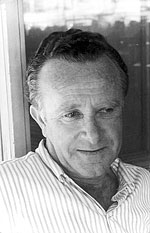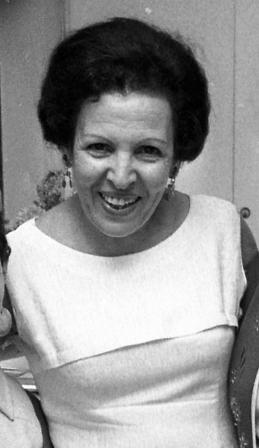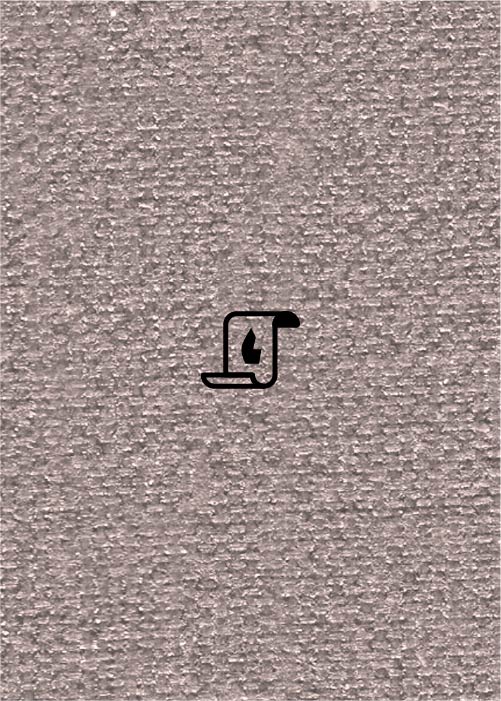Yaacob Orland was born in 1914 in Tetiev, Ukraine, to Eliezer and Batya Orland. At age five, he survived a pogrom in his hometown that claimed the lives of eight family members, after which his family relocated to Kyiv. This traumatic event left a lasting impression on Orland's work, inspiring his poem Kyiv. From Kyiv, the family crossed the Dnieper and Dniester rivers and eventually settled in Bessarabia, living for about a year in Chisinau. While there, Orland attended the Magen David Hebrew Gymnasium. During the same period, Natan Alterman also resided in Chisinau, though the two did not yet know each other.
In 1921, at age seven, Orland immigrated to Israel with his family, settling in Kfar Giladi. Between 1921 and 1923, his parents joined the "Working Brigades," an organization they helped establish, which engaged in building projects such as the Metula-Kfar Giladi-Migdal-Tiberias road. In 1923, the family moved to Jerusalem with the Hotzvim Company. Orland's father, Eliezer, worked as a quarryman and stonemason in the company led by Yitzhak Sadeh, which was involved in the construction of foundational national buildings like the Jewish Agency headquarters, the Yeshurun Synagogue, and the National Library. In 1928, Yaacob began his studies at Tahkemoni, and from 1929 to 1932, he attended the Rehavia Hebrew Gymnasium.
Orland wrote his first song, "We Sing to You, Homeland and Mother," in 1930. This song was later set to music by David Zehavi, a member of Kibbutz Naan and the Working Youth movement, with which Orland maintained a deep connection and served as a youth leader. His first poem, Migdal Shel Shririm ("Tower of Muscles"), was published in the journal Ma'aleh, edited by poet Zerubavel Gilad, where Orland would continue to publish his early works. That same year, he enrolled at the Hebrew University. In 1932, he met Nathan Alterman, with whom he would share a complex friendship lasting until Alterman's death. In 1933, he began studying theater informally and organized readings of English poetry, often from his translations. Orland became associated with the Shlonsky, Alterman, and Penn literary circles and grew close to Israel Zmora, editor of the journal Mahbarot Lesifrut (Notebooks for Literature), which began publishing in 1941.
Between 1936 and 1939, Orland resided in England, where he pursued theater studies at the Royal Academy of Drama in London. During this time, he completed his first poetry collection, Ilan Baruach ("Tree in the Wind"), a work of reflective and allegorical songs inspired by his youth and homeland, dedicated to a romantic interest in London. Upon his return to Israel, he published his second collection, Alim Miginat Hastav ("Leaves from the Autumn Garden").
In 1941, Orland joined the Cultural Division of the British Army, where he met composer Mordechai (Mitya) Zeira, who would later set many of his poems to music. One of Orland's most notable songs from this period, "Hatender Nosea" ("The Pickup Truck"), was popularized by singer Shoshana Damari. His songs "Ets Harimon" ("The Pomegranate Tree") and "Shney Shoshanim" ("Two Roses") also became staples of Israeli music.
Beyond songwriting, Orland was a prolific translator, bringing numerous works into Hebrew, including writings by William Shakespeare and George Bernard Shaw. Between 1944 and 1948, he published several translations, such as Byron's Hebrew Melodies, Oscar Wilde's The Ballad of Reading Gaol, and Wilde's play Shlomit. In 1946, he released his third poetry book, Poems About an Eagle and a Dove.
In 1951, Orland moved to Haifa and began writing plays. His work Hai'r Hazot ("This City") was staged in 1953 at the Ohel Theater, and his play Halishke Hashchora ("The Black Bureau") won the Pinsker Prize, although it remained unpublished. His play Herschel from Australopi has been performed at the Haifa Theater since 1966, and he translated dozens of plays, many staged at the Ohel and Haifa Theaters.
Orland became known as an eminent songwriter, skilled balladist, master of meter and rhyme, and a gifted translator from English and Yiddish. His achievements earned him numerous awards, including the Jabotinsky Prize (1977), the Wertheim Prize from Bar-Ilan University (1983), the ACUM Literature Prize (1984), the Alterman Prize (1987), Bialik Prize (1997), and the Israel Prize for Hebrew Song (1994).
In 1941, Orland married Bat-El Axelsrod, a member of the Etzel. The couple had two children: poet and songwriter Shimrit Or (born 1945) and Reuel, a veterinarian (born 1953).
Yaacob Orland passed away in March 2002 in Haifa at age 88. His archival materials are preserved at Bar-Ilan University.
Sources: Lexicon Hasifrut Haivrit and Zemereshet (Hebrew).






